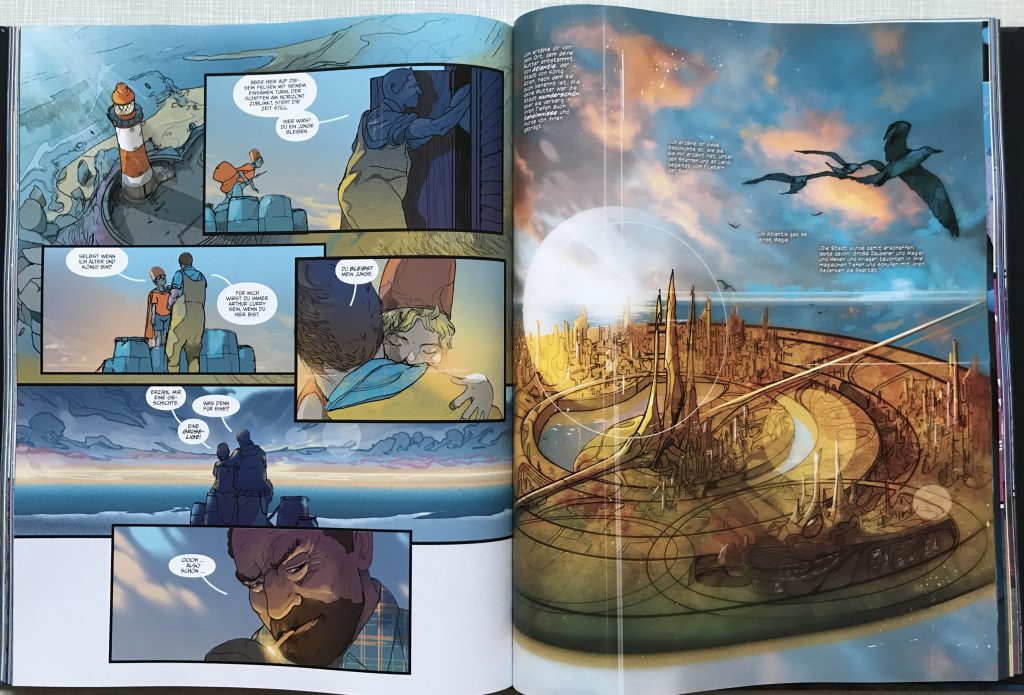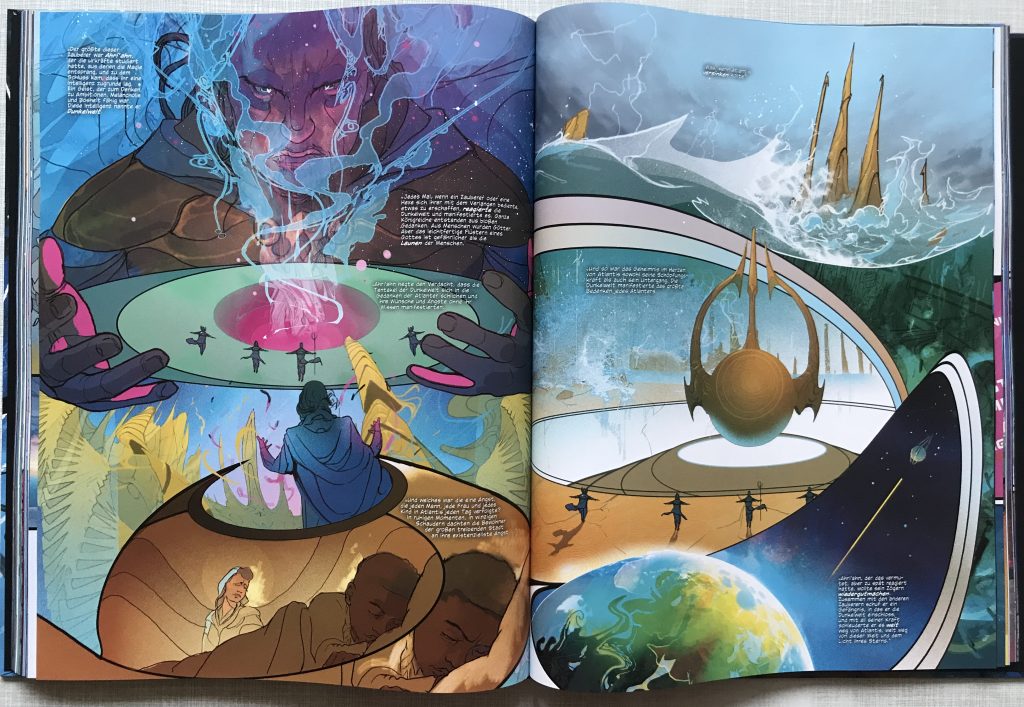Last year author Ram V and artist Christian Ward published a new three piece comic book on the DC-superhero Aquaman. (I have commented on the Aquaman movie from the same year here and here.) The story is not really about Atlantis, acording to the DC universe the sunken kingdom of Aquaman’s mother. But in it Aquaman tells the story of the kingdom, as he says it was told to him by his father once. What makes this, one of countless variations of the myth, interesting to us today, is the role that the (suppressed) fear of submergence plays in it.
According to the tale, Atlantis was a swimmin city and the Atlantan people were blessed with a magic that helped them create their city and become powerful. This secret power could be accessed by magicians and kings but the power also accessed and read the minds of these rulers and eventually threatened to manifest their suppressed fears as well as their desires. “And which was the one fear that haunted every man, every woman and every child in Atlantis every day,” the text reads. “What if Atlantis were to drown?” (my translations from the German print version)
And of course this is what happens: Atlantis sinks beneath the sea level. It’s rulers manage to create an underwater habitat and thereby safe the population while also sending the magic power source, called “Dark World”, away into outer-space. The text concludes: “The mystery in Atlantis’ heart was both its creative force and its downfall.”

While the fall of Atlantis is usually used as a moral metaphor for blind greed and hubris, the Atlantan society created by comic author Ram V seems controlled and maybe obsessed by their ever present fear of the ocean. This is the portrait of a fragile society, one that despite all the powers and wonders it achieved lives a most perilous life, only waiting for the imminent disaster.
Life in Atlantis is essentially what Geologist Peter Haff termed live in the “technosphere” – an existence that is wholly dependent on technological solutions and utterly lost should these ever fail.
Dipesh Chakrabaty, who quotes Peter Haff in his book “The Climate of History in a Planetary Age” compares Haff’s “technosphere” to a much older text from 1955 by Carl Schmitt. Schmitt there distinguishes between a “terran” and a “maritime” existence, the latter being life onboard of a ship. Chakrabaty concludes: “If Haff’s argument is correct, that the technosphere has become a basic condition for the survival of seven (soon to be nine) billion people today, one could say that we have already made Earth into something like Schmitt’s ship.” (my translations)
Or Ram V’s Atlantis, I would add.
Chakrabaty’s conclusion is even more true for coastal communities. The existence of many of these communities rely on sea walls, dikes, pumps and other technical and architectural structures. It is intriguing to take Ram V’s tale of suppressed fears that become manifest and adapt it to the sensibilities and culture of coastal communities today. One is tempted to ask: How much Atlantis is in cities like New York, Bangkok or Jakarta?
